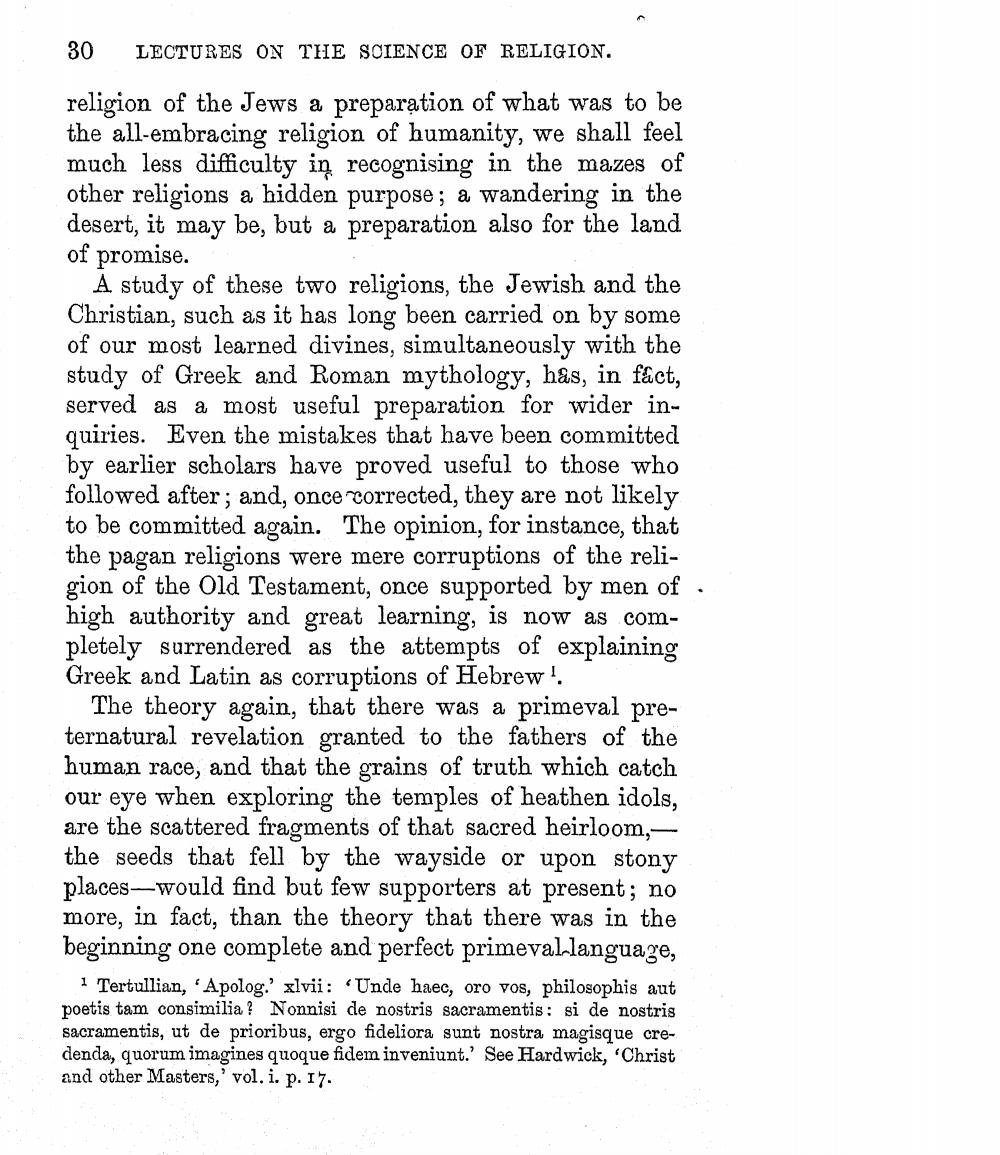________________
30 LECTURES ON THE SCIENCE OF RELIGION.
religion of the Jews a preparation of what was to be the all-embracing religion of humanity, we shall feel much less difficulty in recognising in the mazes of other religions a hidden purpose; a wandering in the desert, it may be, but a preparation also for the land of promise.
A study of these two religions, the Jewish and the Christian, such as it has long been carried on by some of our most learned divines, simultaneously with the study of Greek and Roman mythology, has, in fact, served as a most useful preparation for wider inquiries. Even the mistakes that have been committed by earlier scholars have proved useful to those who followed after; and, once corrected, they are not likely to be committed again. The opinion, for instance, that the pagan religions were mere corruptions of the religion of the Old Testament, once supported by men of high authority and great learning, is now as completely surrendered as the attempts of explaining Greek and Latin as corruptions of Hebrew1.
The theory again, that there was a primeval preternatural revelation granted to the fathers of the human race, and that the grains of truth which catch our eye when exploring the temples of heathen idols, are the scattered fragments of that sacred heirloom,the seeds that fell by the wayside or upon stony places-would find but few supporters at present; no more, in fact, than the theory that there was in the beginning one complete and perfect primeval-language,
1 Tertullian, 'Apolog.' xlvii: Unde haec, oro vos, philosophis aut poetis tam consimilia? Nonnisi de nostris sacramentis: si de nostris sacramentis, ut de prioribus, ergo fideliora sunt nostra magisque credenda, quorum imagines quoque fidem inveniunt.' See Hardwick, 'Christ and other Masters,' vol. i. p. 17.




